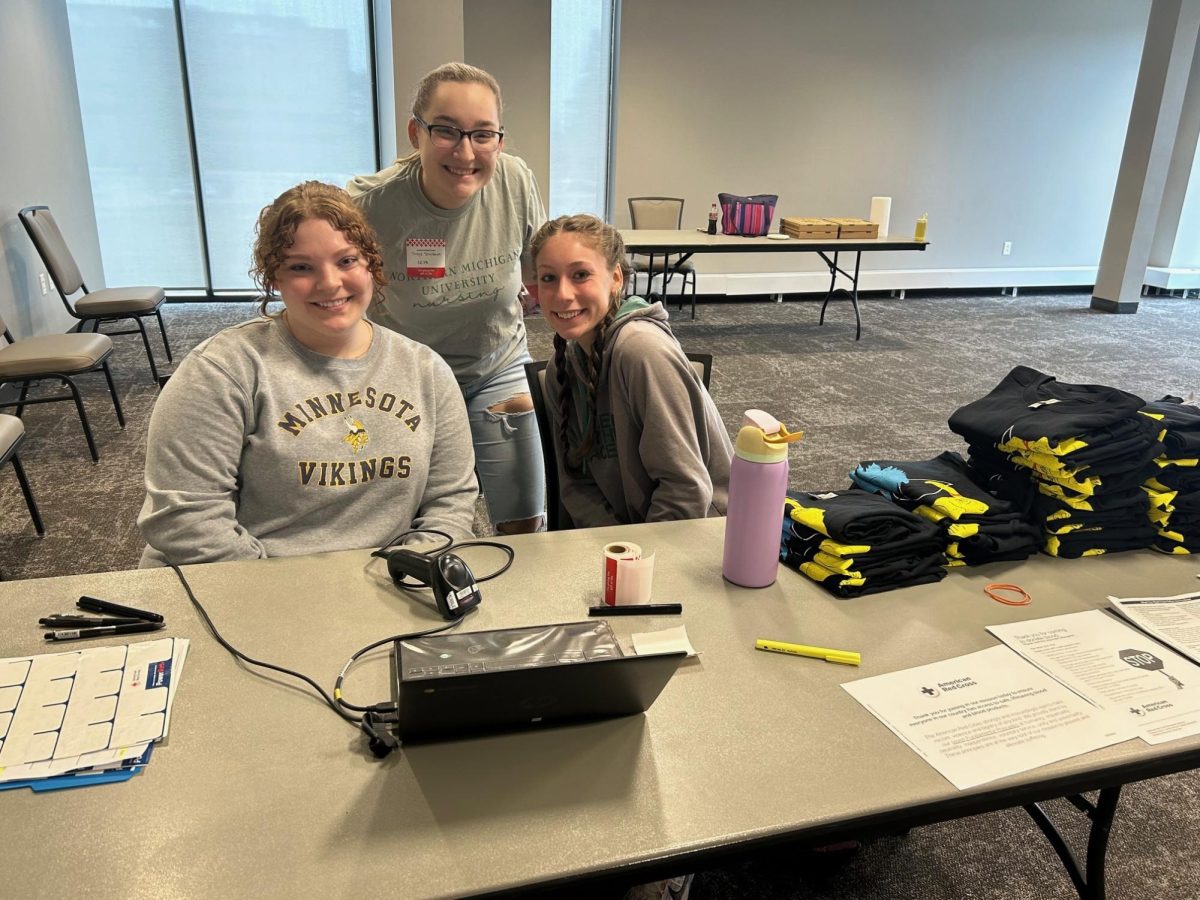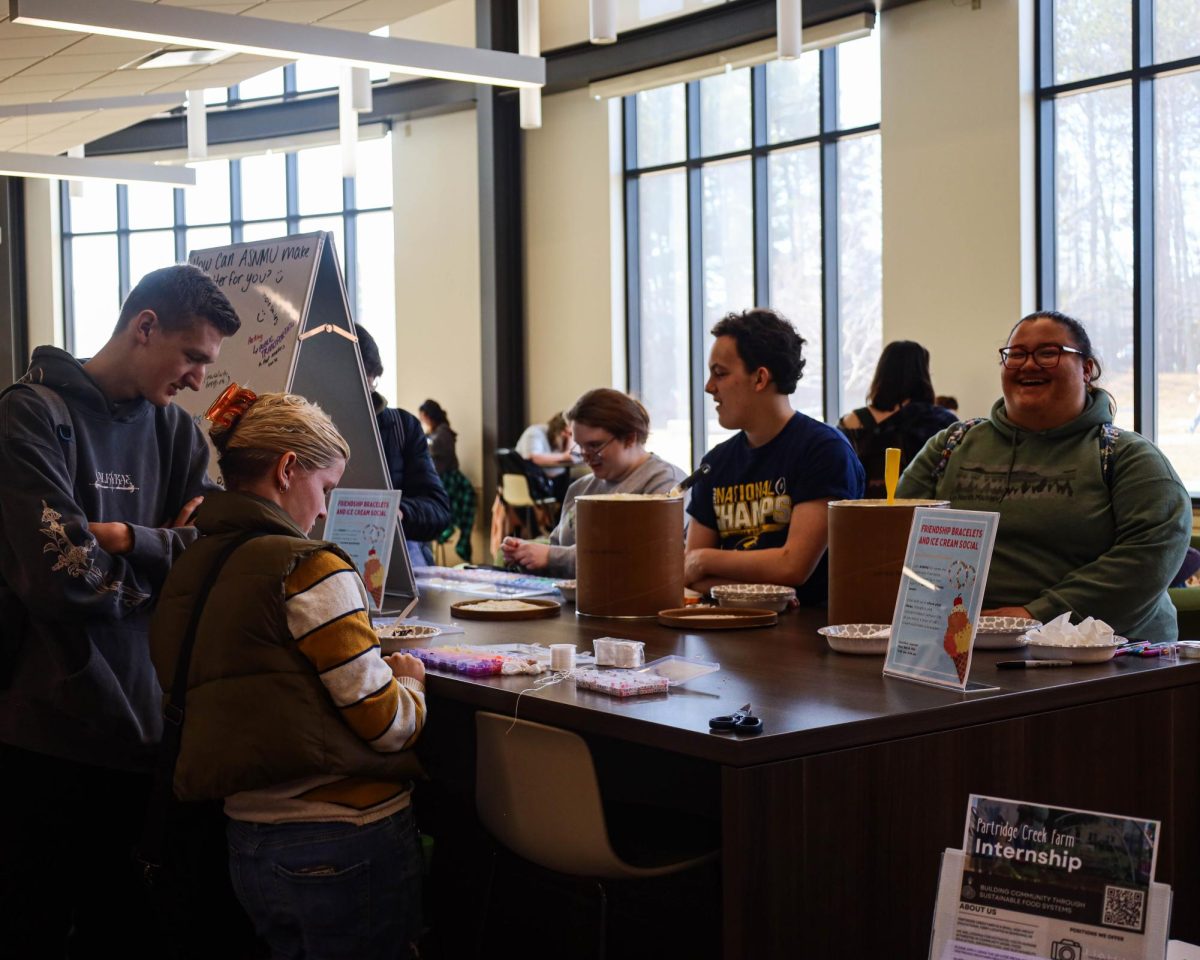Whatever back to school tension is called; pressure, anxiety or great expectations, it’s all the same — it’s stress. But that stress can be either positive or negative. Ideally, students can take control of their stress and use it to their advantage, but that’s when it’s good.
Senior Carolyn Venner said stress forces her to organize more.
“I have to plan things out or I will never get them done,” Venner said.
However, that can be a tough thing to do. Sometimes stress levels are too high to direct unto what needs to get done, for example writing a paper or giving a speech, and then students have to learn to cope.
Health Promotion Specialist Lenny Shible said healthy stress management treats the problem while unhealthy management will only treat the symptoms.
“An unhealthy method will provide temporary respite from that pressure, but is only a quick fix,” said Shible. “I always ask, ‘Is your choice of behavior doing more good than harm, or more harm than good?'”
Shible also says the most common unhealthy coping mechanisms that college students use are eating or not eating, compulsive shopping, drugs, alcohol, gambling or just not dealing with the stress at all.
Marie Aho, the Interim Director of Counseling and Consultation Services said students can take care of their mental health by taking care of their physical health. She explained how eating, sleeping, getting exercise, socializing and keeping a balance between work and recreation may make stress more manageable.
“For college students, talking with a friend and organizing or better managing time are a couple of more popular and helpful stress relievers,” Aho said.
No matter the coping technique, the stress does need to be taken care of. “There can be physical health consequences and anxiety if the stress levels become too high,” Aho said. “Anxiety can interfere with ability to pay attention, concentrate, remember and learn.”
How do students know when to do something about their emotional state, whether they are dealing with stress, anxiety, depression or any other psychological issue?
“When their emotional state begins to interfere with effectiveness and motivation and ability to do the things they can normally do, they should seek help,” Aho said.
There are some excellent resources at NMU for students, faculty and staff community members that are dealing with any sort of emotional or psychological trouble.
The Health Promotion Office is a good place to go for information on alcohol, drugs, tobacco, sexual health, gambling, sexual assault, violence and of course stress. The department’s Web site, www.nmu.edu/hpo, has a number of different links for other sites that offer information on various health related subjects.
“We pride ourselves in being an information and referral resource for all members of the university community on a variety of health related matters,” said Shible.
Another resource on campus is Counseling and Consultation Services (CCS), which currently offer individual, group or couples counseling, crisis intervention, personal growth, consultations regarding a third party, psychoeducational presentations and Performance Enhancement Training.
Services offered by CCS cover depression or anxiety, grief and loss, stress, trauma and crisis, overwhelmed or panicked feelings, relaxation, family or relationship issues and assertiveness.
“A lot of students come in for help with stress management and panic attacks, but the staff can also help with serious mental health and addiction problems,” Aho said.
However, students do not need to have a specific issue or topic in mind for an appointment with CCS. “Students can stop in for assistance with a range of topics, including personal growth and even decision making,” said Aho.
Counseling isn’t just for people that have serious health problems, it’s for anyone that wants to explore their inner strengths and learn more about themselves. The central idea behind therapy is to improve psychological health.
Venner said that she knows a little bit about Counseling and Consultation Services. “I know they are there but I’ve never used them. I have considered going there though, to vent, just to have someone listen,” she said.
Students should know that the services are comprehensive, free of charge and work best if they come in early in the development of the problem.
Aho also says that students should know that there is no limit on the number of sessions a student may have, although the average number of visits is five.
“Some students will stop in just once for help, but others will continue to use the services offered for their entire college education, perhaps episodic with the presence of their problems,” Aho said.
Aho added that CCS does use outside resources when needed. Such as the Vielmetti Health Center for medication evaluation.
Other times CCS will refer students elsewhere. Aho said, “We do that when adjunctive things are needed; nutritional assessments, or something for a physical health issue. There can be times when required resources cannot be reasonably supplied and then we refer to the community specialist.”
The Counseling and Consultation Services office is located at 3405 Hedgcock and is open Monday through Friday 8 a.m. to 5 p.m. To make an appointment for any of NMU’s therapy services, students should stop by the office to fill out the preliminary paperwork. All services are free and confidential.

























